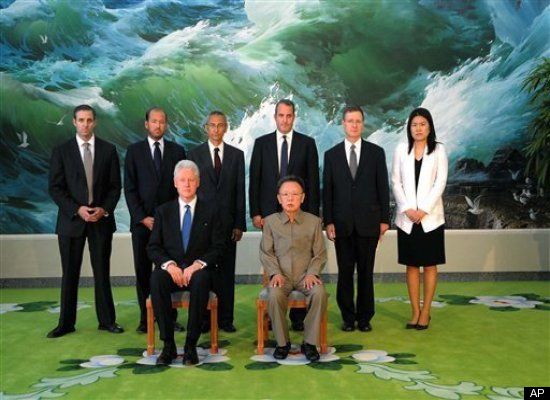
As President Obama vacations at Martha's Vineyard, a bit of perspective on presidential vacations is in order. Barack Obama is not the first president to spend time on Martha's Vineyard. Bill Clinton vacationed there numerous times. The Clintons and the Obamas rent their vacations homes. Other presidents has retreated to homes they or their families owned to vacation. George W. Bush and Ronald Reagan to their ranches in Crawford, Texas and Rancho del Cielo, in Santa Barbara, California respectively. George H. W. Bush spent time at the family home in Kennebunkport, Maine. Of course, John F. Kennedy spent considerable time at his family home in Hyannis, Massachusetts.
 Jimmy Carter split most of the limited time that he vacationed between his home in Plains Georgia and on the Georgia coast on St. Simmons Island at Musgrove Plantation and on Sapelo Island. Carter's vacation spots coincidentally intersected with other presidential getaways. George and Barbara Bush honeymooned on Sea Island in 1946 at the Cloister just a few miles from Musgrove. Carter's home in Plains was also just 75 miles or so south of Warm Springs, where Franklin Roosevelt convalesced weeks on end for relief from polo and to be with his mistress Lucy Page Mercer Rutherfurd. Carter also vacationed at the Brinkerhoff Lodge in Grand Teton National Park (pictured right) as did presidents John F. Kennedy, Richard Nixon, and George H. W. Bush.
Jimmy Carter split most of the limited time that he vacationed between his home in Plains Georgia and on the Georgia coast on St. Simmons Island at Musgrove Plantation and on Sapelo Island. Carter's vacation spots coincidentally intersected with other presidential getaways. George and Barbara Bush honeymooned on Sea Island in 1946 at the Cloister just a few miles from Musgrove. Carter's home in Plains was also just 75 miles or so south of Warm Springs, where Franklin Roosevelt convalesced weeks on end for relief from polo and to be with his mistress Lucy Page Mercer Rutherfurd. Carter also vacationed at the Brinkerhoff Lodge in Grand Teton National Park (pictured right) as did presidents John F. Kennedy, Richard Nixon, and George H. W. Bush.
(Back to the list) Richard Nixon's regular vacation home was in Key Biscayne, Florida. Truman spent time in Key West. Herbert Hoover in Rapidan Camp in the Shenandoah Valley in Virginia. Theodore Roosevelt was on vacation in 1901 in the Adirondacks when president McKinley was shot. And, last on this short list, Abraham Lincoln vacationed (as it was) down the street from the White House on Soldiers Home (left), perhaps just enough to get away from it all!
From SLATE V
POTUS as House Guest: A Short History
Article on the History News Network about the length of presidential vacations. James Madison took the longest single vacation at four months long. Jimmy Carter vacationed the least over a four year period at just 79 days total.





